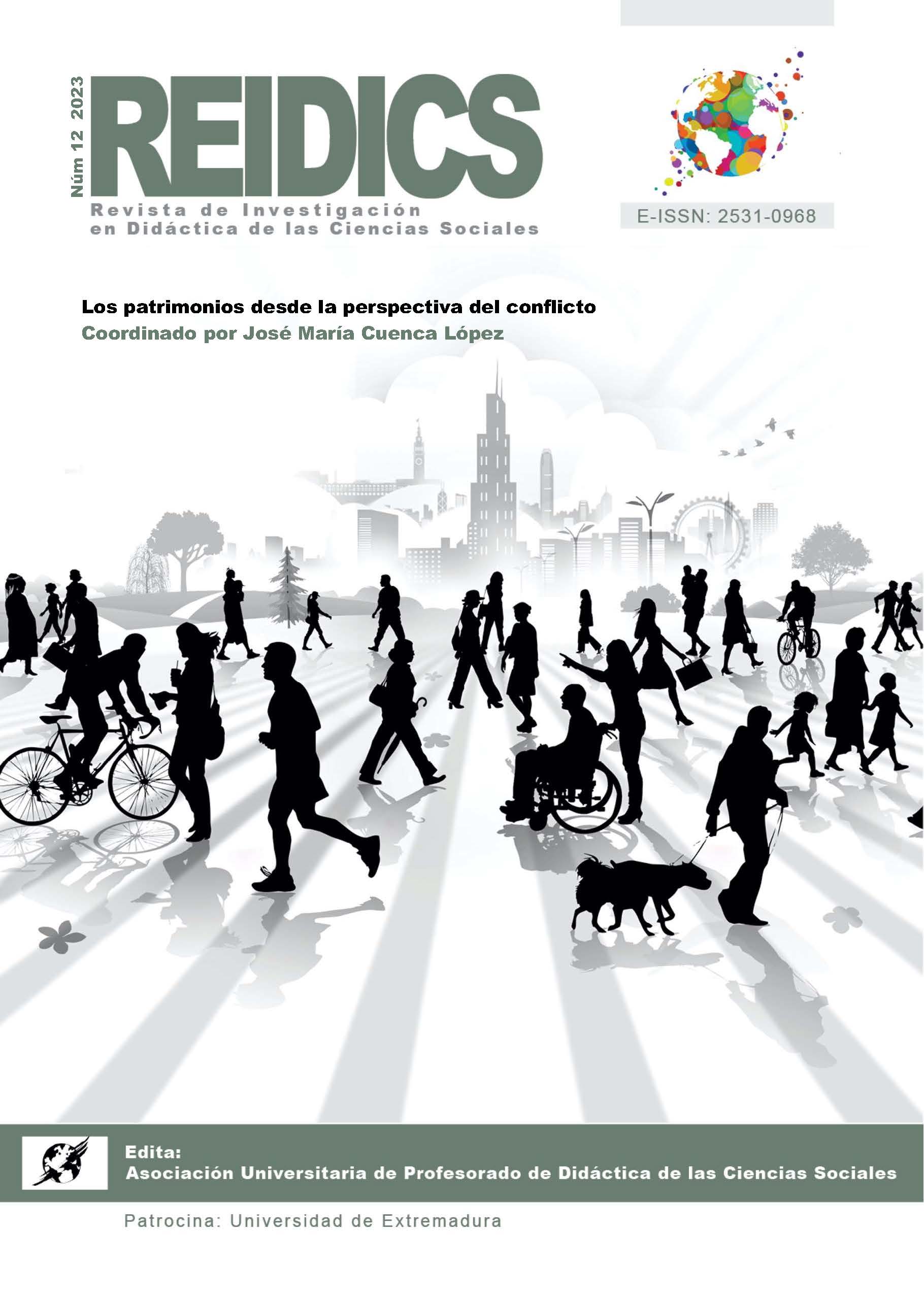Heritage and emotions in ESO students: analysis of an experience in the museum
DOI:
https://doi.org/10.17398/2531-0968.12.09Keywords:
cultural heritage, identity, museum, heritage education, emotional educationAbstract
We present the results of an investigation framed in the R&D project “Controversial Heritage for the eco-social formation of citizenship. An investigation of heritage education in regulated education (EPITEC2)”, reference PID2020-116662GB-100, which describes a didactic experience carried out in the 3rd year of ESO Social Sciences at the IES Galeón, located in Isla Cristina (Huelva, Spain). The general objective is to determine how the acquisition of socio-emotional skills occurs in secondary school students from a didactic proposal based on heritage education. This project, to favor meaningful learning in its methodological application, connects the curricular contents around economic sectors with the educational programs offered by museums. Data was collected from classroom recordings, non-participant observation, research diaries, and focus groups. To ensure the accuracy of the results, we applied a double triangulation system once the information was categorized through the Atlas.ti program. The results show, mainly, that heritage education is an effective didactic tool for the development of socio-emotional skills such as empathy skills, personal autonomy or self-knowledge and communication skills that contribute to the formation of a more committed and responsible citizenry in the face of the challenges of today's society.
Downloads
Published
Issue
Section
License
Aquellos autores/as que tengan publicaciones con esta revista, aceptan los términos siguientes:
- Los autores/as conservarán sus derechos de autoría y garantizarán a la revista el derecho de primera publicación de su obra, el cual estará simultáneamente sujeto a la Licencia de reconocimiento de Creative Commons 4.0 BY-NC-SA que permite a terceros compartir la obra siempre que se indique su autor y su primera publicación en esta revista.
- Los autores/as podrán adoptar otros acuerdos de licencia no exclusiva de distribución de la versión de la obra publicada (p. ej.: depositarla en un archivo telemático institucional o publicarla en un volumen monográfico) siempre que se indique la publicación inicial en esta revista.
- Se permite y recomienda a los autores/as difundir su obra a través de Internet (p. ej.: en archivos telemáticos institucionales o en su página web) antes y durante el proceso de envío, lo cual puede producir intercambios interesantes y aumentar las citas de la obra publicada. (Véase El efecto del acceso abierto).
- Los autores y autoras han respetado la política de autoría de esta revista.




